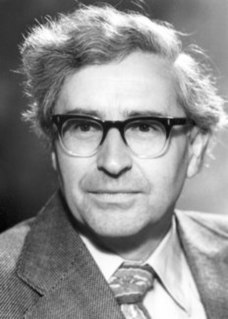A Quote by Joseph Glanvill
They that never peeped beyond the common belief in which their easy understandings were at first indoctrinated are strongly assured of the truth of their receptions.
Related Quotes
Truth should be the first lesson of the child and the last aspiration of manhood; for it has been well said that the inquiry of truth, which is the love-making of it, the knowledge of truth, which is the presence of it, and the belief of truth, which is the enjoying of it, is the sovereign good of human nature.
Thoughts and emotions which never perhaps were in the mind of the artist, never were anticipated, never were intended by him - may be strongly suggested by his work. This is an important part of the morals of art, which we must never lose sight of. Art is not only for pleasure and profit, but for good and for evil.
Belief comes spontaneously as well as by effort. Belief is power. An insincere and uninspired seeker is aware of the truth that belief is power, but he cannot go beyond understanding or awareness; whereas a sincere, genuine, devoted and surrendered seeker knows that belief is dynamic power, and he has this power as his very own.
We spent as much money as we could and got as little for it as people could make up their minds to give us. We were always more or less miserable, and most of our acquaintance were in the same condition. There was a gay fiction among us that we were constantly enjoying ourselves, and a skeleton truth that we never did. To the best of my belief, our case was in the last aspect a rather common one.
The ghostly presence of virtual particles defies rational common sense and is nonintuitive for those unacquainted with physics. Religious belief in God, and Christian belief that God became Man around two thousand years ago, may seem strange to common-sense thinking. But when the most elementary physical things behave in this way, we should be prepared to accept that the deepest aspects of our existence go beyond our common-sense intuitions.
Pragmatism asks its usual question. "Grant an idea or belief to be true," it says, "what concrete difference will its being true make in anyone's actual life? How will the truth be realized? What experiences will be different from those which would obtain if the belief were false? What, in short, is the truth's cash-value in experiential terms?
Constitutions are not designed for metaphysical or logical subtleties, for niceties of expression, for critical propriety, for elaborate shades of meaning, or for the exercise of philosophical acuteness or judicial research. They are instruments of a practical nature, founded on the common business of human life, adapted to common wants, designed for common use, and fitted for common understandings.





































